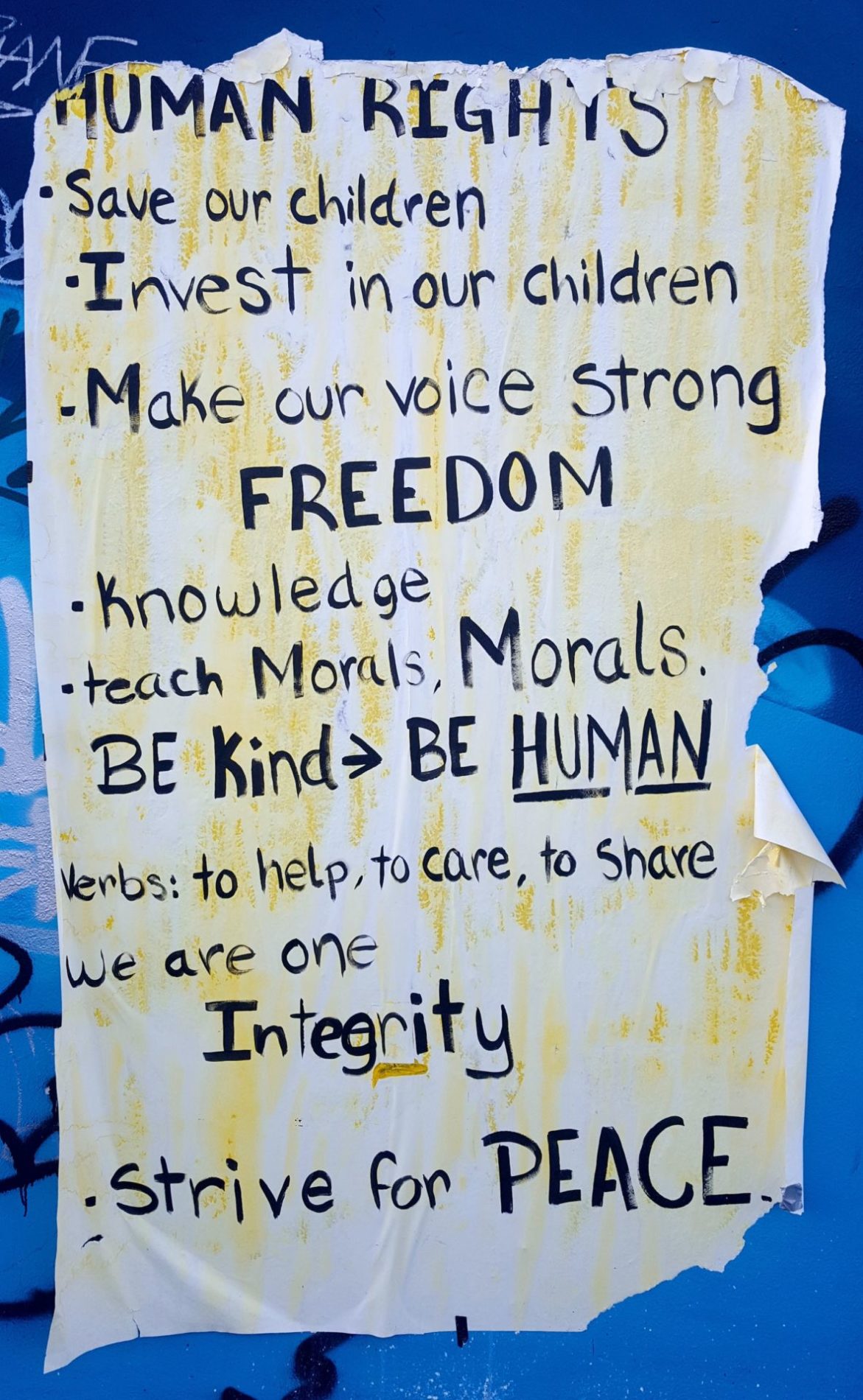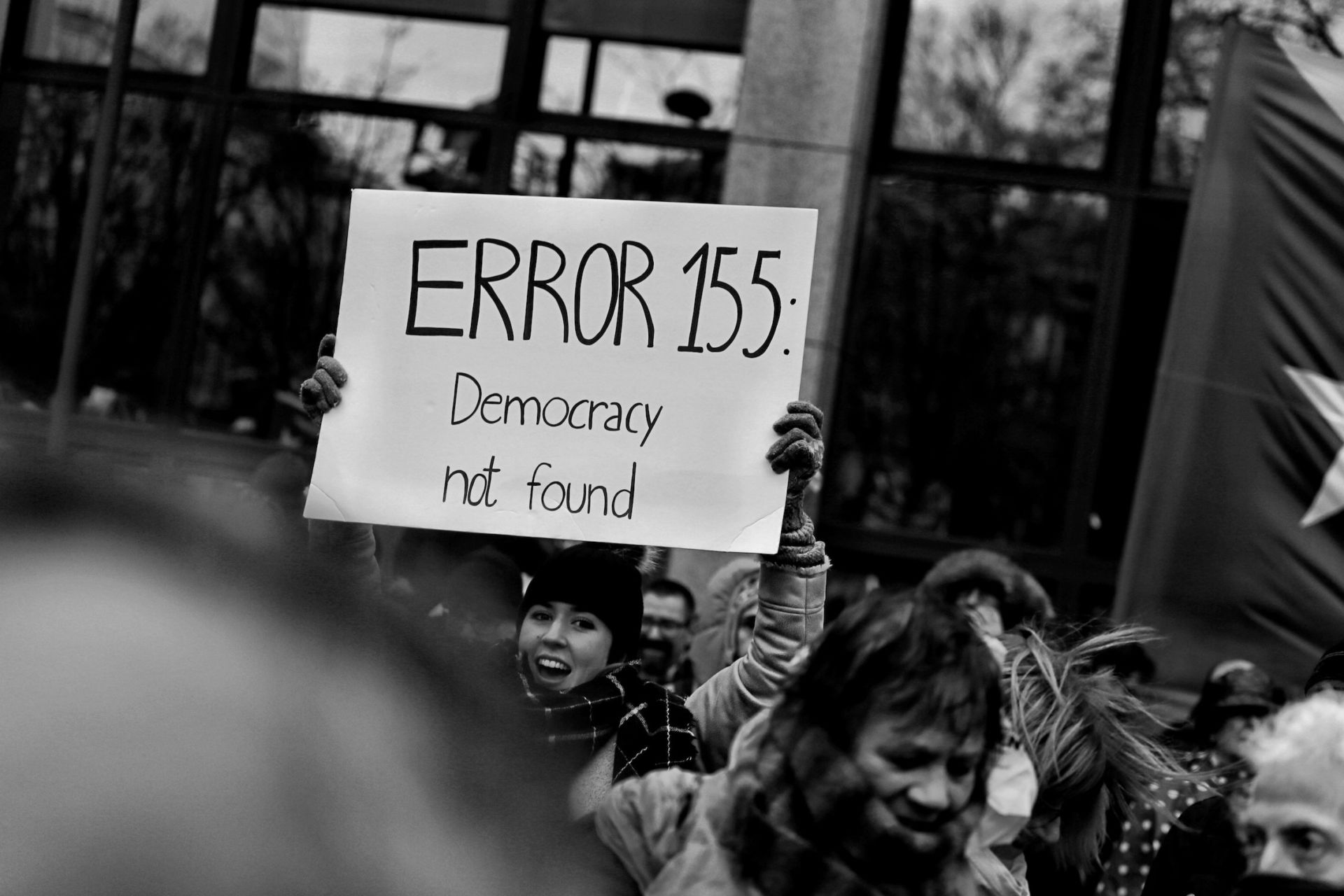Liberal democracies all around the world have entered a complicated era as citizens begin to lose confidence in their governments. This phenomenon has put the maintenance of the democratic model itself at risk. The individualist and egalitarian mindsets are no longer the most accurate perspectives from which to monitor the relationship between the state and its people as the complex realities of society have come to light.
Minorities, which are usually the most vulnerable social groups, have been forgotten and their interests and needs are often overlooked by the power of majorities, who usually make the decisions. As a consequence of their invisibility, minorities have turned to protest, demanding that their rights and needs be heard and met. Through protest, they are making their conditions and disadvantages known within both social and political domains.
In Latin American states, certain social and political events have occurred that have changed the understanding of politics in the region. The arrival of populist leaders to power gives way to the transformation of the legal order. The reformation of constitutions, laws, and the design of the public administration model has begun.
With this scenario, people can easily and mistakenly support views that are against their nations’ best interests. Complex and opposite discourses are quickly spread by media agencies and platforms. Citizens can adopt any certain posture or ideal, and often misinterpret the real intentions and meaning of the discourse itself.

Discourse is one of the most effective tools for social control and can be dangerous. But, the upholding of the right to freedom of speech becomes an obstacle when regulating discourse in constitutional states.
Therefore, due to the powerful and dangerous nature of discourse based on its social impact in terms of the construction of public opinion, we have to appeal to the morality of the ones who control the conversation, which is often something difficult to achieve.
Public and influential figures such as politicians, social leaders, journalists, and academics have the common responsibility to moderate their individual discourses. They must build their rhetoric based on verifiable information and data in order to eliminate any aspect of their perspective that can lead to a discourse of hate against anything or anyone.
Democracy is one of the most important elements of contemporary constitutional states, and its preservation necessitates both social and governmental responsibilities. Citizens must defend democratic principles and states must guarantee that public institutions respect them.
We must conceive democracy as the tool that allows nations to be represented by a unified set of values, principles, customs, identities, and individuals. Ignoring or excluding any social group and their needs will inevitably cause social division, which sows a fertile field for the growth of hate discourse and unhealthy public opinion.
Editor’s Picks — Related Articles:
Colombia: A Divided Country in Search of Peace
The Decline of Debate and its Impact on Democracy
Containing Migration is a Mistake
Nations worldwide have the arduous challenge of finding a way to procure the construction of public opinion based on accurate information and rational discourse. This feat is difficult to achieve considering the power of social media and fake news networks which are normally sponsored by opposition groups and by criminal organizations that take advantage of scandals generated by false information.
At the same time, freedom of speech is a human right that must be protected by the state in a dimension of no intervention. In other words, states cannot silence or censure opinions from any individual. Nevertheless, as is true with every human right, freedom of speech is limited based on the rights of others’ and the maintenance of public order.
In this sense, states, through Constitutional Courts, assume the responsibility of balancing human rights and constitutional values, which is certainly not an easy task.

Balance and control of rights and constitutional values is one of the most difficult issues that constitutional states have to deal with today. Debates about the matter have recently been the subject of in-depth studies within fields such as legal philosophy, sociology, and politics. People with opposing points of view have come together from these discussions and have developed certain methodologies to solve these kinds of conflict.
However, without diminishing the value of these methods and studies, we must act and make changes in our wounded societies ourselves. Individuals must assume a commitment to tolerance and mutual respect towards one another.
Pluralism is no longer a simple concept. It is the reality of our nations and we must accept that our societies are comprised of individuals from different backgrounds with contrasting points of view, different sets of beliefs, customs, traditions, identities, genders, and ways of life. But, a diverse society is a true society, and if we become inclusive, respectful, and tolerant, the intervention of the state in our relations and lives will decrease and matters of conflict will naturally find solutions.
The egalitarian liberalism theory of society present in many countries today must be complemented by other philosophies and ideals that incite pluralism and communitarian ways of social development. Without assessing the success or rightfulness of egalitarian liberalism, the current reality of our societies proves that the way its ideas were implemented has failed.
The construction of healthy public opinion can help to implement successful societal changes. But, to achieve that, we need the commitment of influential social actors, public institutions, and all individuals. Society, morality, and law are related, and we cannot determine the optimum grade of intervention considering only one or two of the three. Prudence and discretion must prevail in our words, and our words must be a product of self-restraint and reason. We must work hard at marrying these three concepts to create a superior democracy.










